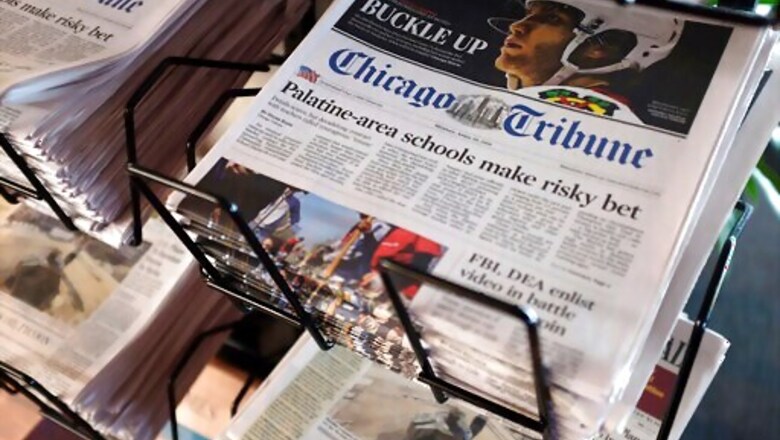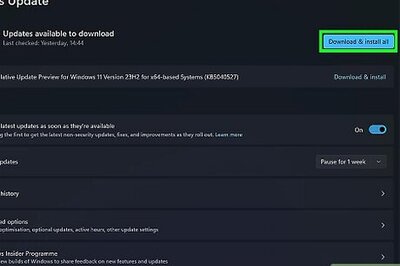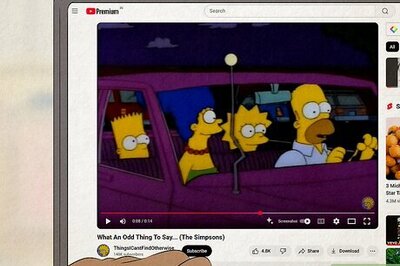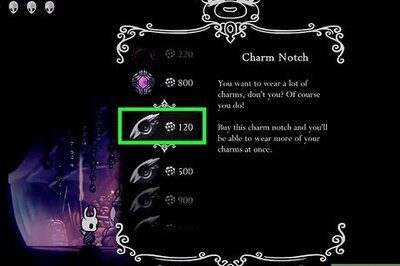
views
Hedge fund Alden Global Capital closed its deal for Tribune on Monday. It wasted little time installing new leadership and saddling the newspaper chain with $278 million in debt it took on for the acquisition, according to regulatory filings.
Alden, which owns the MediaNews Group newspaper chain and is the second-largest newspaper company by circulation, has a reputation as a ruthless cost-cutter in pursuit of profits. Shifting debt to Tribune’s books raises concerns that the publisher would make cost cuts that hurt coverage in the company’s communities. Tribune’s papers include the Chicago Tribune, Baltimore Sun and Hartford Courant. Tribune reporters tweeted Wednesday that the company was offering voluntary buyouts.
The union that represents Tribune journalists had warned that Alden would use borrowed money to pay for Tribune, a tactic that would limit its ability to invest in in papers, it said. While Alden had said in December that it could fully finance the transaction with cash on hand and will not require third party debt or equity, a filing in April noted that Alden had a right to finance up to $375 million with debt.
Tribune shareholders on Friday approved the sale to Alden, which valued Tribune at about $637 million. That ended a hard-fought struggle by Tribune’s journalists to find alternative local buyers out of fear that Alden ownership would hollow out their papers and prompt more newsroom layoffs.
On Monday, Alden transferred $278 million of debt to Tribune, $60 million of which Alden effectively borrowed from itself technically, from its other newspaper company, MediaNews Group at a high interest rate of 13%. A unit of the private equity firm Cerberus loaned $218 million, according to a Tuesday filing.
Tribune had no debt and could invest cash flow in improvements, said Rick Edmonds, Poynters media analyst. That goes away to a degree with the new debt. Still, he said Alden’s likely game plan was cuts, debt or no debt.
At the end of its first quarter, Tribune had no debt and $250 million in cash, the company said in early May, even though its revenue and staff levels had been steadily declining. The newspaper industry has been contracting for years as readers shift online and companies cut back on print ads.
In a series of reports, the University of North Carolinas journalism school has noted that the media barons of this century are investment firms that ramped up buying of newspapers in trouble after the 2008 recession. These hedge funds and private equity firms typically finance acquisitions with debt and then slash costs, including layoffs. Profits, the report says, are not invested in journalism but go toward debt, management fees and shareholders.
Tribune itself is no stranger to cost cuts and shrinking newsrooms. Since emerging from bankruptcy in 2012 a bankruptcy that came after it was taken private by billionaire Sam Zell and loaded with debt its revenue and staff have shrunk. Its annual revenue has fallen by more than half since 2015, and by the end of 2020 its number of full- and part-time employees stood at 2,865 people, just 40% of its headcount five years earlier.
Alden has also removed Tribune Publishing CEO Terry Jimenez, who had publicly opposed the deal, as CEO. The hedge fund’s co-founder and president, Heath Freeman, 41, is Tribune’s new president. Freeman generally keeps a low profile but has said in interviews that the business model of local news was broken and Alden has bought papers that were ” left for dead.
Alden’s papers include the Boston Herald, Denver Post and San Jose Mercury News in its MediaNews Group.
Representatives for Tribune and Alden did not return requests for commment.
Disclaimer: This post has been auto-published from an agency feed without any modifications to the text and has not been reviewed by an editor
Read all the Latest News, Breaking News and Coronavirus News here. Follow us on Facebook, Twitter and Telegram.


















Comments
0 comment